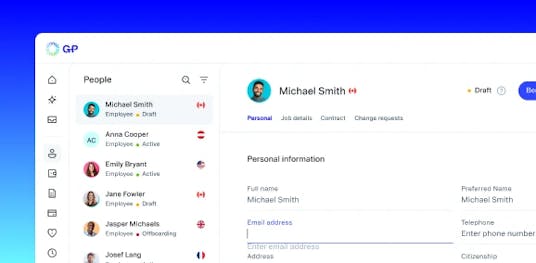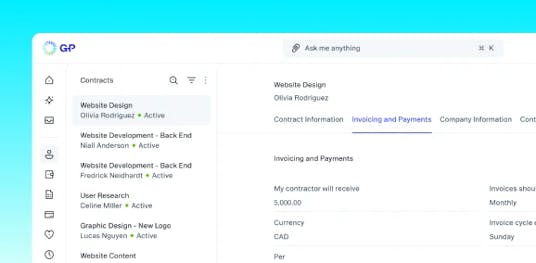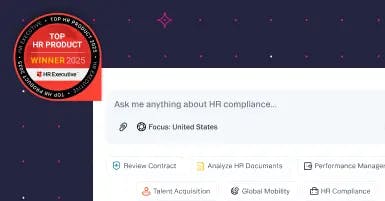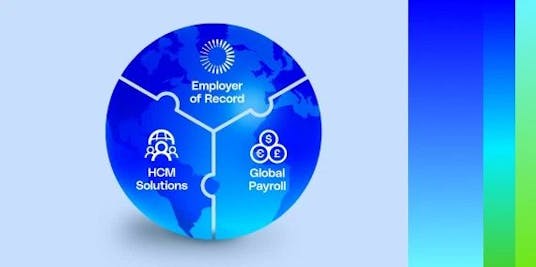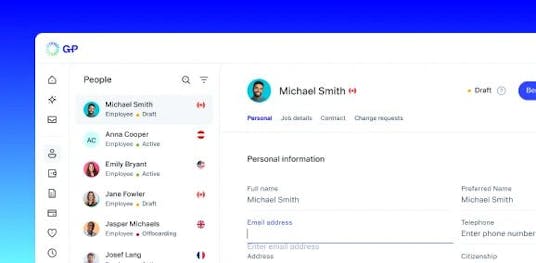In Thailand, employer of record (EOR) products and services play a crucial role in complying with the country’s complex employment regulations. They ensure that employment processes, from hiring to termination, meet local legal requirements. AI-powered EOR services cover everything from legal employment contracts to managing payroll taxes, ensuring seamless operations for businesses.
By tapping into the expertise of an employer of record Thailand, companies can confidently navigate diverse regulatory requirements, minimizing legal risks. EOR support reduces the risk of non-compliance, enabling businesses to concentrate on their core activities and freeing them from the complexities of local legal and tax requirements.
Hiring in Thailand with an EOR
Partnering with an Employer of Record is the simplest way to hire employees in Thailand. An EOR ensures compliance with local labor laws from the start, handling everything from drafting compliant employment contracts to managing Thailand payroll and benefits. Navigating Thai business culture, which places a strong emphasis on respect, is crucial when negotiating terms of employment. G-P’s in-country experts provide the local knowledge necessary for success.
Employment contracts in Thailand
Employment in Thailand requires understanding various legal entities. In Thailand, employment contracts can be oral or written. Written contracts are crucial to meet Thai legal standards. However, it is a mandatory best practice to implement a strong, written contract in the local language that clearly states the terms of the employee's compensation, benefits, and termination requirements. An offer letter and employment contract in Thailand should always state the salary and any compensation amounts in Thai baht (THB).
Working hours and overtime in Thailand
The standard workweek in Thailand is a maximum of 48 hours. Any work performed beyond 8 hours in a day or 48 hours in a week is considered overtime, which generally cannot exceed 36 hours per week. Overtime pay rates are set by law:
-
Normal workdays: 1.5 times the employee's regular hourly rate.
-
Holidays and rest days: 3 times the employee's regular hourly rate.
Certain employees, such as those in executive or managerial positions with authority over hiring, promotion, and termination, are exempt from overtime pay regulations.
Public holidays in Thailand
Employers must provide employees with at least 13 paid public holidays per year. The government announces the official list annually. Common public holidays include:
-
New Year's Day
-
Makha Bucha Day
-
Chakri Memorial Day
-
Songkran Festival (3 days)
-
National Labor Day
-
Coronation Day
-
Visakha Bucha Day
-
Asarnha Bucha Day
-
H.M. The Queen Mother's Birthday
-
H.M. The King's Birthday
-
King Bhumibol Adulyadej The Great Memorial Day
-
Chulalongkorn Memorial Day
-
Constitution Day
-
New Year's Eve
If a public holiday falls on a weekend or a scheduled rest day, the following working day is granted as a paid substitute holiday.
Vacation days in Thailand
Employees are entitled to a statutory minimum of 6 paid vacation days per year after completing their first year of continuous service. In practice, many companies offer 10-15 days to attract and retain talent. Unused vacation days may be carried over to the next year, subject to the terms of the employment agreement.
Sick leave in Thailand
Under Thai labor law, employees are entitled to up to 30 days of paid sick leave per year. Employers must comply with Thai labor laws. For absences of 3 or more consecutive days, an employer may require a medical certificate from a licensed physician. Leave due to a work-related injury or illness is covered under the Workmen's Compensation Act and is not counted as statutory sick leave.
Maternity and paternity leave in Thailand
Pregnant employees are entitled to 98 days of maternity leave. This is paid as follows:
-
45 days paid by the employer.
-
45 days paid by the Social Security Fund (payment is capped).
-
The remaining 8 days are typically unpaid, unless the employer agrees to cover them.
There is currently no statutory requirement for paid paternity leave in the private sector.
Other leave entitlements in Thailand
Thai law provides for several other types of paid leave, including:
-
National Service leave: For military service obligations, paid for up to 60 days per year.
-
Sterilization leave: Paid leave for the period specified in a medical certificate.
-
Training/exam leave: For courses or government exams relevant to the employee's career.
In addition, certain types of leave are customary but not legally mandated, and are typically governed by company policy. These include leave for marriage, compassionate reasons, Hajj pilgrimage, or entering the monkhood.
Health insurance and benefits in Thailand
Thailand provides universal healthcare through a social security system for private sector employees. This fund covers basic medical care at designated public hospitals. However, to offer more comprehensive coverage and access to private hospitals, many employers provide supplemental health and life insurance as a competitive benefit. An EOR like G-P can help you arrange attractive and compliant benefits packages for your team in Thailand.
Supplementary benefits in Thailand
While not mandatory, offering a provident fund is a common benefit to encourage retirement savings. If an employer establishes a provident fund, their contribution must be equal to or greater than the employee's contribution. This is crucial for foreign companies operating in Thailand. Contribution rates are typically between 2% and 15% of the employee's salary.
Bonuses in Thailand
A 13th-month salary or annual bonus is not required but is the market norm in Thailand.
Termination and severance in Thailand
In Thailand, a probationary period can be agreed upon in the employment contract, typically lasting up to 119 days. This specific duration is common because employees who complete 120 days of service become entitled to statutory severance pay upon termination without cause.
If terminating an employee without cause, employers must provide advance written notice of at least one full pay period. Additionally, statutory severance pay is mandatory for employees who have worked for 120 consecutive days or more. The payment is calculated based on the employee's length of service:
-
120 days to less than 1 year: 30 days of wages.
-
1 year to less than 3 years: 90 days of wages.
-
3 years to less than 6 years: 180 days of wages.
-
6 years to less than 10 years: 240 days of wages.
-
10 years to less than 20 years: 300 days of wages.
-
20 years or more: 400 days of wages.
Navigating these severance rules correctly is critical, and a key responsibility managed by an EOR. G-P ensures all terminations adhere to Thai labor law, mitigating risks for your company.
Taxes and social security in Thailand
Employers and employees must contribute to Thailand's social security system. Both parties contribute 5% of the employee's monthly salary. The calculation is based on a minimum salary of THB 1,650 and is capped at a maximum salary of THB 15,000, resulting in a maximum monthly contribution of THB 750 from both the employer and the employee.
Employees are also subject to Personal Income Tax (PIT), which employers must withhold and remit. After standard deductions and allowances, annual net income is taxed at progressive rates:
-
THB 0 – 150,000: 0% (Exempt)
-
THB 150,001 – 300,000: 5%
-
THB 300,001 – 500,000: 10%
-
THB 500,001 – 750,000: 15%
-
THB 750,001 – 1,000,000: 20%
-
THB 1,000,001 – 2,000,000: 25%
-
THB 2,000,001 – 5,000,000: 30%
-
Over THB 5,000,000: 35%
Why G-P?
G-P EOR is the award-winning, AI-powered SaaS platform that empowers ambitious companies to build global teams. Onboard, manage, and pay top talent in over 180 countries in minutes, bypassing the typical time, cost, and complexity of local entity setup. G-P EOR is the preferred partner for leading HCM, PEO, and payroll platforms. Bring your workforce data together in one place to maintain existing workflows while guaranteeing consistent and accurate data across your integrated systems.
Request a proposal today to learn more.
